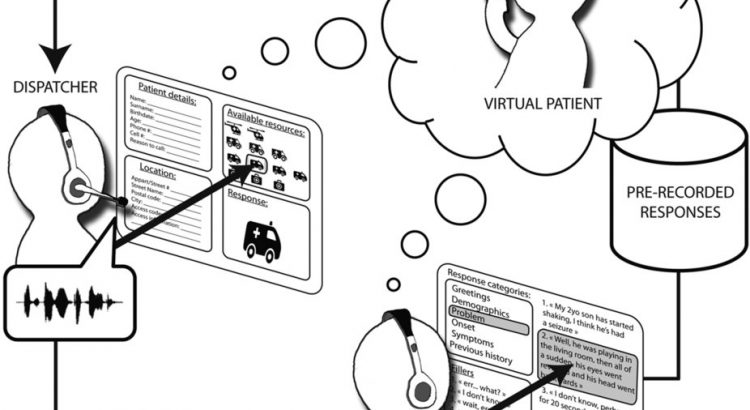Our team published a new paper this week, in which we test the influence of patients’ tone of voice on medical decisions.
In the line of our recent real-time emotional voice transformations, we manipulated the voice of (fake) patients calling a 911 phone simulator used for training (real) medical doctors, to make them sound more, or less, physically dominant (with deeper, more masculine voices corresponding to lower pitch and greater formant dispersion, see e.g. Sell, A. et al. Adaptations in humans for assessing physical strength from the voice. Proceedings of the Royal Society of London B: Biological Sciences, 277(1699), 3509–3518 (2010) – link).
We found that patients whose voice signalled physical strength obtained a higher grade of response, a higher evaluation of medical emergency and longer attention from medical doctors than callers with strictly identical medical needs whose voice signaled lower physical dominance.
The paper, a collaboration with Laurent Boidron M.D. and his colleagues at the Department of Emergency Medicine of the Dijon CHU Hospital/Université de Bourgogne, was published last tuesday in Scientific Reports (link, pdf).
